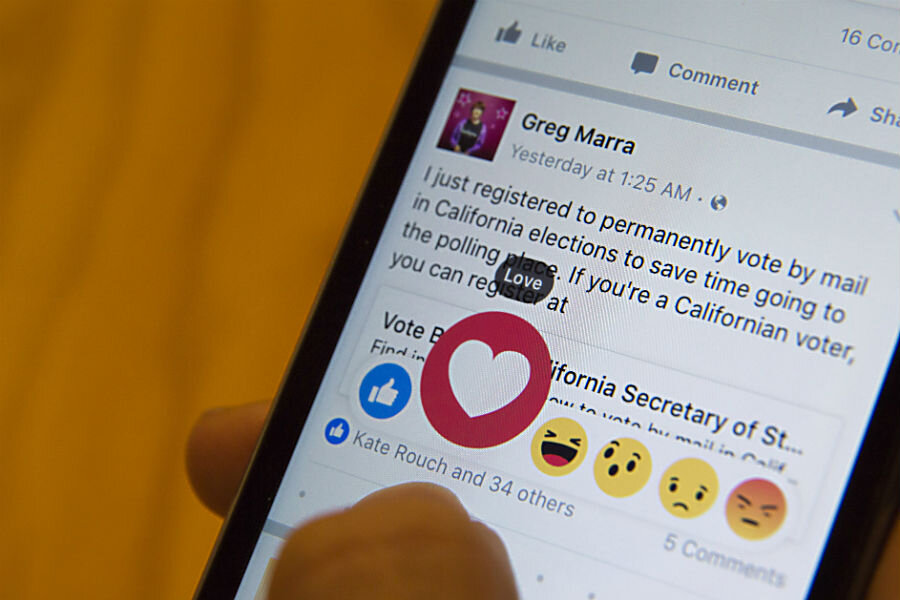Why Belgium is warning its citizens about Facebook emojis
Loading...
Belgian officials have issued a cautionary warning about Facebook: They're telling citizens not to use Facebook Reactions, if they want to preserve their privacy.
Facebook rolled out a new set of five additional Reactions in February, in an apparent response to user feedback. Facebook users had long expressed the need to have a dislike button, but company officials said they didn’t want to bring negativity to the site. Instead, they added five new emojis designed to help users express what they felt: Love, Haha, Wow, Sad, or Angry.
But those emoji reaction buttons are raising privacy concerns in Belgium. Officials say that Facebook is collecting information based on how users react to content on the social network, and selling it to advertisers.
"By limiting the number of icons to six, Facebook is counting on you to express your thoughts more easily so that the algorithms that run in the background are more effective," Belgium's federal police force posted in a news release Wednesday. "A mouse click can let them know what makes you happy."
The post continues, "if it appears that you are in a good mood Facebook will infer that you are more susceptible to advertising and will be able to sell advertising space to marketers by telling them they have a better chance to get you to react at certain times."
This is not the first time that Facebook's site has raised privacy concerns. In Europe, where privacy laws are much more strict, some of the company’s products have been under scrutiny. EU laws require companies to obtain user consent before collecting data on them.
In March 2015, a team of researchers from the Centre of Interdisciplinary Law and ICT (ICRI), the Computer Security and Industrial Cryptography department (Cosic) at the University of Leuven, and the media, information and telecommunication department (Smit) at Vrije Universiteit Brussels released a report saying that Facebook collects data of everyone who visits a page on its site, including those who don’t have Facebook accounts, the Guardian reported.
Last March, a court in Germany ruled against Peek & Cloppenburg, an online retail company’s use of the Facebook Like button. The North Rhine-Westphalia Consumer Association had filed a suit against the company alleging that it was collecting information on users visiting their site and sending it to Facebook, even before the users clicked on the "Like" button.
And in the United States, the company has recently come under fire over allegations that it is racially profiling its users and selling the information to advertisers. The company's feature, 'multicultural affinity targeting' analyzes users likes and interest and uses the information to group the users into four racial or ethnic groups – non-multicultural (presumably Caucasian), African-American, Asian-American, and Hispanic. As the Christian Science Monitor's Husna Haq reported:
If a Facebook user likes BET or Essence, or is a member of the African American Chamber of Commerce group, for example, Facebook may identify the user as part of the African-American affinity group. Changing the site's language setting to Spanish would lump a user into the Hispanic group.
Belgium’s warning comes just a few days after a study showed that the Reaction emojis aren’t being used very often. Researchers at Quintly, a US-based company, analyzed 130,000 Facebook posts finding that 97 percent of the engagements on the posts involved like, comments and shares.
"In this first step of our Facebook Reactions analysis it is clear that Facebook Reactions are not used very frequently by the average at this point," the researchers said, ET Telecom reported.








